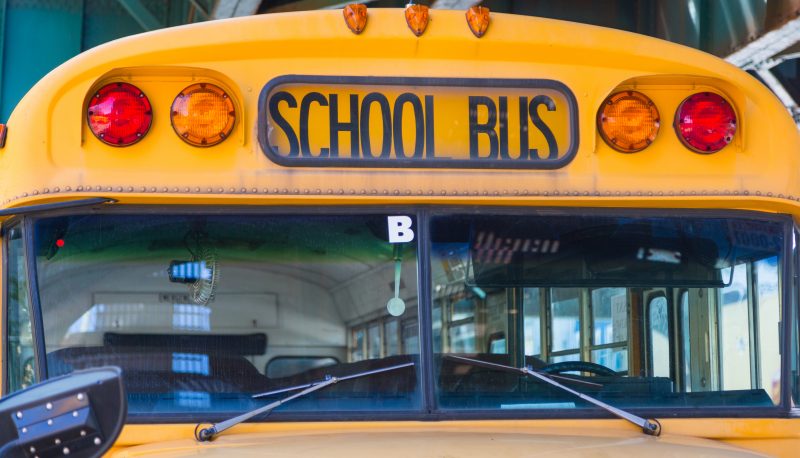“Confirmed Judges, Confirmed Fears” is a blog series documenting the harmful impact of President Trump’s judges on Americans’ rights and liberties. Cases in the series can be found by issue and by judge at this link.
Trump Supreme Court Justices Brett Kavanaugh and Neil Gorsuch cast deciding votes to require that Montana must fund tax credits for religious and other private schools, despite a state constitutional provision that prohibits funding of sectarian schools. The June 2020 5-4 decision is Espinoza v. Montana Dept. of Revenue.
In 2015, Montana created a private school tuition tax credit program under which taxpayers would get tax credits for contributing to scholarship programs that help pay tuition for students who attend private schools in the state. The legislation provided that it should be implemented in accord with a state constitutional provision that prohibits state financial support for “sectarian” (religious) schools. The Montana Department of Revenue accordingly issued a rule that banned the use of scholarship funds at religious schools. Several families challenged the rule.
The Montana Supreme Court ruled that it was improper to use government funds to fund religious schools under the state Constitution, since that would violate the Constitution’s “guarantee to all Montanans that their government will not use state funds to aid religious schools.” It decided that the department did not have the authority to promulgate the rule, however, and thus decided that the entire scholarship program should be invalidated. The U.S. Supreme Court agreed to consider the case.
In a 5-4 decision by Chief Justice John Roberts and joined by Brett Kavanaugh and Neil Gorsuch, the Supreme Court reversed the Montana Supreme Court. Roberts explained that once Montana decided to provide financial support for non-public schools, it was required to fund religious schools as well. It violated the First Amendment’s free exercise clause, he went on, to “disqualify” schools because of their “religious status.”
Justice Gorsuch went even further in a concurring opinion, suggesting that it would also violate the First Amendment to prohibit state aid for “religious activities” such as learning to become a minister, despite a previous Supreme Court decision that specifically upheld such a restriction by the state of Washington. Gorsuch also joined a concurring opinion by Justice Clarence Thomas, who argued that it is “erroneous” to interpret the First Amendment’s Establishment Clause as applying to the states or requiring government to “treat all religions equally and treat religion equally to nonreligion.”
The four moderate justices strongly dissented in several opinions. Justices Ruth Bader Ginsburg and Elena Kagan pointed out that the Montana Supreme Court’s decision “does not” treat religious schools differently than non-religious private schools, since the court had invalidated the tuition tax credit program as applied to both and thus treated them “neutrally.” Justice Sotomayor similarly noted that there was no real free exercise claim in the case after the state Supreme Court’s ruling, since there was no “differential treatment” or “resulting burden on religious exercise.”
Justices Kagan, Stephen Breyer, and Sonia Sotomayor also explained what was wrong with the majority’s First Amendment analysis. Justices Breyer and Kagan noted that history and precedent “reflect a deep concern that state funding for religious teaching” may “fuel religious discord and division and thereby threaten religious freedom itself.” Although the federal establishment clause “does not forbid” a state from funding religion, they went on, precedent makes clear that this does not mean that the free exercise clause “requires it to do so” when the state’s own Constitution prohibits taxpayer funding of religious schools because “taxpayer-supported supported religious indoctrination poses a threat to individual liberty.”
Justice Sotomayor was even more blunt. The majority’s ruling, she stated, “weakens this country’s longstanding commitment to a separation of church and state beneficial to both.” The decision is “perverse,” she concluded, both because it effectively requires a state to “reinstitute a tax-credit program that the Constitution did not demand in the first place,” and because it adopts a “new theory” of what the free exercise clause requires by “setting aside well-established judicial constraints.”
The longer-term consequences of the majority’s decision are unclear, but potentially dangerous. As one commentator has pointed out, 29 states now provide tuition tax credits, and under the Court’s decision, they “must now extend these programs to private religious schools,” even if the result is to use taxpayer funds for “indoctrination of children” into a religion that might “clash” with a taxpayer’s “own conscience.”
The decision also calls into serious question the validity of state constitutional provisions in 37 other states that prohibit state funding of religious schools, as Justice Samuel Alito vehemently argued. And as the National Coalition for Public Education pointed out, the 5-4 ruling has “opened the door for voucher proponents in states to aggressively pursue the diversion of taxpayer dollars to private schools.”

